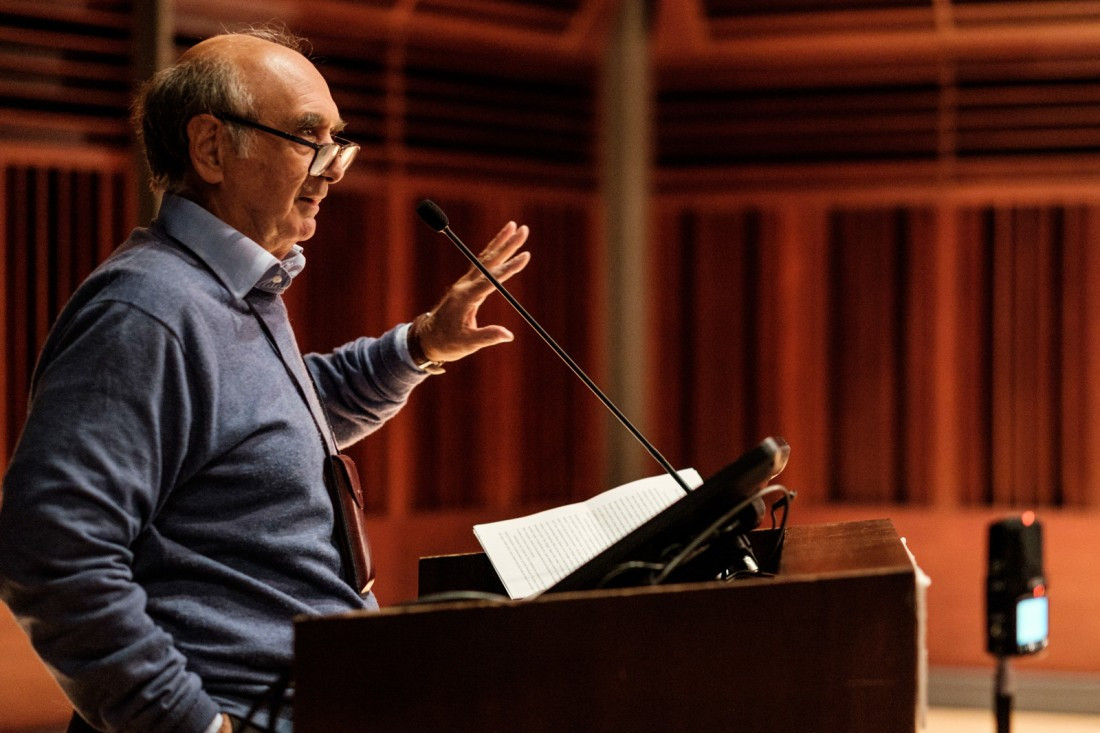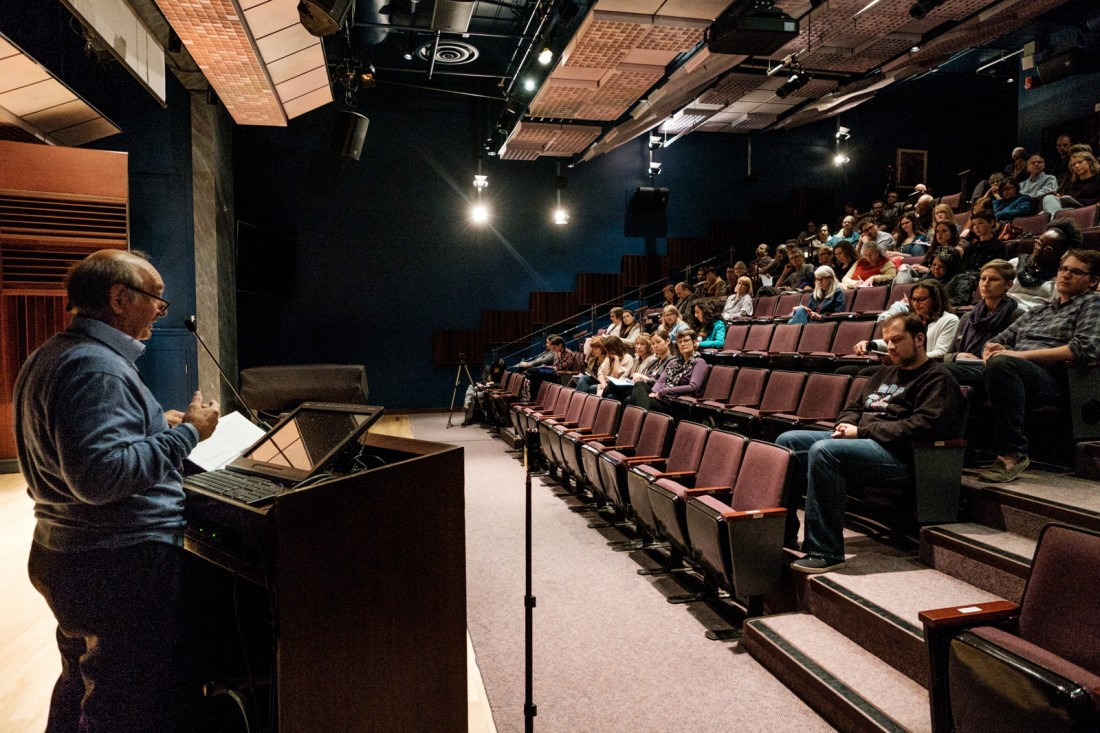Muddle your memory
Acclaimed oral historian praises imperfect imagination
For Italian oral historian Alessandro Portelli, tall tales and distorted memories are just as important as what really happened.
“In order to work with imagination you have to have the facts,” Portelli says during a keynote address in Bryce Hall. “But you don’t throw away good stories because they aren’t true.”
Portelli’s lecture, “On the Use of Memory,” was the first in a series for the International Workshop on Oral History that took place at the University of Winnipeg (U of W) from Oct. 1 to 3.
By emphasizing what we can learn from subjectivity, Portelli has become regarded as perhaps the most influential oral historian to date.
A professor of literature at the Sapienza University of Rome, Portelli is fascinated by stories and what they have to tell us.
“Back then, the whole debate about oral history was how reliable the sources are. To me, all the errors were fascinating,” Portelli says. “What memory is about is not so much preserving facts but creating meaning, and in many ways you create meaning by somehow altering the fact(s).”
When thinking back on some of his favourite interviews, Portelli mentions talks with an Auschwitz survivor, with a woman who took part in the American civil rights movement and with a 21-year-old student who told him about the police riots in Genoa in 2001.
Portelli mentions age as an important factor in the dynamics of his interviews, but not for the reasons you’d think.
“A lot of oral history projects involve young people, especially in schools, interviewing old people,” Portelli says. “I always wonder, ‘What would happen if we took a bunch of old folks and sent them out to interview kids?’”
“One thing I’ve learned doing projects of student movements is memory is not a disease you catch when you get old… We’ve put much emphasis on the past and it makes sense to some degree. The past may be the content of memory, but remembering is an act of the present.”
Portelli spoke during the first night of the International Workshop on Oral History, which included lectures by three of the U of W’s own faculty members – Alexander Freund, Nolan Reilly and Janis Thiessen – and by other members of the historical field throughout Canada.
During his talk on Oct. 1, Portelli commented on the importance of using memory to undermine what we take for granted in terms of the unquestioned narratives of our history.
“There’s no way you can stop memory,” Portelli says. “Memory acts very much like an involuntary muscle, like breathing. Nobody questions whether breathing is good or bad, we just do it. With breathing, we can improve the capacity of our lungs and try to have clean air around us. This is more or less what we can do with memory.”
“We can’t decide whether we want to remember or forget, but we can remember critically. We can try to clear the air of manipulated memories that are imposed upon us.”
Published in Volume 70, Number 5 of The Uniter (October 8, 2015)








